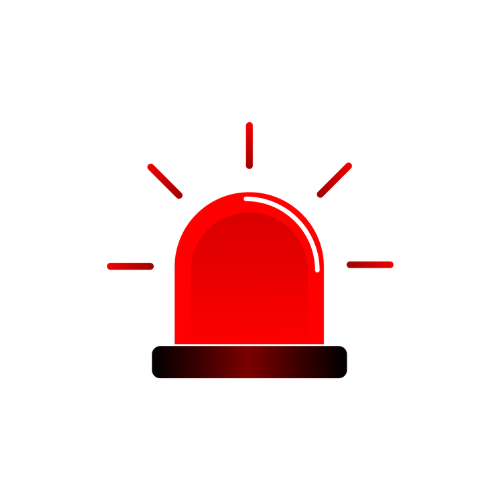Ever wonder why a sudden wave of anxiety can make you feel like you’re losing control? Experiencing a panic attack can be scary and confusing. But don’t worry—you are not alone, and there is help.
During these intense moments, finding effective panic attack relief is key. Let’s explore some expert-approved strategies to help you regain control and ease your distress quickly.
The first step in coping with panic attacks is knowing you can soothe your symptoms and get through them. This guide will show you how to do just that.
If it’s your first time or you’re looking for better ways to handle panic attacks, this guide has you covered. It will give you the knowledge and tools you need for emergency panic attack help.
Are you ready to learn how to face a panic attack head-on and find relief? Let’s get started.
Quick Recommendation: Our blog is filled with tips and tricks to overcome anxiety and panic attacks. If you’re seeking a Proven Panic Attack Treatment, we recommend Panic Away.
Understanding Panic Attacks: Symptoms and Causes
Recognizing the symptoms of a panic attack is key. You might feel an overwhelming sense of fear, a rapid heartbeat, or even shortness of breath. These intense physical sensations often make you believe you’re facing a grave danger or even a heart attack. But understanding these symptoms can help alleviate some of the paralyzing fear.

The causes of panic attacks are complex and involve both psychological and physiological elements. Stress is a big trigger, often leading to these terrifying episodes. Genetics also play a role, showing that if you have a family history of panic disorder, you could be more at risk. Triggers can range from stressful life events to specific phobias, highlighting the intricate network of factors involved.
Recognizing the symptoms of a panic attack and understanding the underlying causes is the first step toward effective management. Whether it’s stress, genetics, or particular triggers, pinpointing these elements offers invaluable insight into tackling panic disorder.
Immediate Steps to Calm Down During a Panic Attack
Having a panic attack can feel overwhelming. But, knowing how to calm down fast can really help. Here are some steps you can take right away to feel better.
1. Focused Breathing: Deep breathing can calm you down. Start by breathing in deeply through your nose for a count of four. Then, hold your breath for a count of four. Finally, breathe out slowly through your mouth for a count of four. Keep doing this until you start to relax.
2. Grounding Techniques: Grounding helps you focus on the present. Try the 5-4-3-2-1 technique: list five things you see, four things you can touch, three sounds you hear, two smells you notice, and one taste you can recall.
3. Positive Self-Talk: It’s important to talk kindly to yourself during a panic. Tell yourself that the feeling will pass and you know how to stop it. Repeat phrases like, “I am safe,” and “This will pass.”
These calming techniques can be a big help during a panic. Practicing them often can also help you manage future panic attacks better.
Long-Term Strategies for Managing Panic Attacks
Managing panic attacks well is key for long-term health. Cognitive behavioral therapy (CBT) is a top method. It helps you understand and change thoughts that cause panic attacks. By facing and changing these thoughts, you can lessen how often and how bad the attacks are.
Changing your lifestyle can also help prevent panic attacks. Eating right, sleeping well, and exercising regularly are important. Exercise, for example, releases endorphins. These are natural stress fighters that help you deal with anxiety better.
Stress management like meditation, deep breathing, and mindfulness can also help. These practices keep you calm and lower stress. Adding them to your daily life helps you stay in control and feel more peaceful.
How to Create a Panic Attack Action Plan
Creating a panic attack action plan is key to managing panic attacks well. Start by figuring out what triggers your attacks. Knowing what causes your panic can help you prepare better.
After identifying your triggers, it’s important to have a plan for how to react. This could mean doing deep breathing, using grounding techniques, or repeating a calming phrase. The more you practice these, the easier they’ll be to do when you need them.
Getting support from loved ones is also crucial. Make sure your friends and family know how to help you and what to look for if you’re having a panic attack. Having people who understand can really help.
Knowing when to get professional help is a big part of your plan. Sometimes, therapy or counseling can give you the tools to better manage your anxiety. Being aware of your options can make you feel more in control during panic attacks.
Quick Recommendation: Our blog is filled with tips and tricks to overcome anxiety and panic attacks. If you’re seeking a Proven Panic Attack Treatment, we recommend Panic Away.
Medications and Treatments for Panic Attacks
There are many panic attack medications and treatments out there. SSRIs and benzodiazepines are key in managing symptoms. SSRIs like Prozac, Zoloft, and Lexapro can help reduce how often and how bad attacks are.
Benzodiazepines, such as Xanax and Ativan, work fast to calm the nerves. But, they’re usually used for a short time because of the risk of becoming dependent. Talking to anxiety specialists can help find the right treatment for panic disorder for you.
Cognitive Behavioral Therapy (CBT) is a top choice without medication. It helps you change thoughts that lead to panic attacks. Holistic methods like mindfulness, relaxation, and exercise also help manage symptoms.
It’s important to work with health experts, like your doctor or an anxiety specialist. They can help create a plan that might include panic attack medication and therapy. This way, you can take back control and improve your life.
Common Misconceptions About Panic Attacks
Many myths about panic attacks lead to unnecessary fear and confusion. One myth says only “weak” people get them. But this is not true. Panic attacks can happen to anyone, no matter their age, gender, or background.
They are a mental health issue that needs understanding and support, not blame.
Another myth is that you’ll faint during a panic attack. You might feel dizzy or lightheaded, but fainting is rare. Knowing this can help reduce anxiety during an attack.
Some think panic attacks are just from stress and can be easily fixed by relaxing. But they are complex, involving both mind and body. Calling them simple overreactions stops people from getting the help they need.
By clearing up these myths, we can build a supportive community. Knowing the truth about panic attacks helps those affected manage their condition better and find the right help.
im having a panic attack what do i do
If you’re in the middle of a panic attack, remember that you can find relief right away. Start by taking a deep breath and focus on calming down. Use the 5-4-3-2-1 technique to ground yourself. This means listing five things you see, four things you can touch, three sounds you hear, two smells you notice, and one taste you can identify.
Dealing with panic means staying calm and taking steps on purpose. Call someone you trust for help. Talking about your feelings can make you feel better right away. Also, remember that the panic attack will end and it can’t hurt you.
For quick relief, try controlling your breathing. Breathe in deeply through your nose for four seconds, hold it for seven, and breathe out slowly through your mouth for eight seconds.
Lastly, learn a mantra or a reassuring phrase. It could be “I am safe” or “This too shall pass.” Saying it to yourself during the attack can help calm your thoughts. You’re not alone in this struggle, and there are many resources and tools to help you.
Conclusion
Overcoming panic attacks is a journey that needs understanding, management, and support. We’ve looked at panic attacks from different angles. We talked about recognizing symptoms, finding causes, and steps to calm down. We also discussed long-term plans and the role of strategies like medication in building resilience.
It’s key to take proactive steps in managing panic attacks. By making a personal plan, learning about effective treatments, and clearing up misconceptions, you gain knowledge and tools. Remember, it’s not just about feeling better now. It’s about creating a lasting way to take care of your mental health.
Find support from friends, family, or professionals to help with panic disorder. You’re not alone. With the right strategies and self-care, beating panic attacks is possible and achievable. Let this be the start of your journey to resilience and better mental health. Keep moving forward with confidence and hope.
Quick Recommendation: Our blog is filled with tips and tricks to overcome anxiety and panic attacks. If you’re seeking a Proven Panic Attack Treatment, we recommend Panic Away.

